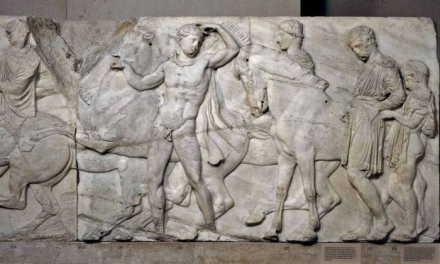By Jackson Diehl, Washington Post
President Trump inherited a Middle East convulsed by crisis and civil war with two fragile exceptions: the Israeli-Palestinian conflict and Iran’s nuclear program, both of which were quiescent.
With two impulsive, egotistical decisions, taken against the strong recommendations of his national security team, he has endangered the status quo on both fronts. Now the question is whether Congress or European allies will save him from a potentially disastrous third strike.
The similarities between Trump’s refusal to recertify the Iranian nuclear deal in October and his decision to recognize Jerusalem as Israel’s capital last week are striking — and revealing. In each case, he was presented with a congressionally mandated requirement to renew a policy of previous presidents. His secretaries of defense and state urged him to preserve it, lest he disrupt U.S. policies and endanger U.S. interests across the Middle East and beyond.
Each time, Trump bridled — essentially flipping over the table and insisting he would not do what Barack Obama or George W. Bush or Bill Clinton would have done. He made no secret of the fact that his primary — maybe his sole — motivation was to prove that he was a different and somehow better president. “Previous presidents . . . failed to deliver,” he boasted in announcing the Jerusalem move. “I am delivering.”
Trump’s advisers have scrambled to embed these impetuous decisions into something resembling a strategy: a bid to enlist Congress and European allies in a campaign to fill the loopholes in the nuclear deal; a Mideast peace plan that draws Palestinians and Arabs back into diplomacy. But this is window dressing. In fact, neither Trump nor anyone else in the administration planned beyond his decisions or is prepared for their fallout — whether it is renewed violence in the Palestinian territories or a deepening rift with vital allies.
Some of that reckoning is already occurring. Rex Tillerson, Trump’s beleaguered secretary of state, got an icy reception when he arrived in Brussels last week for a European tour. Descriptions of Trump’s Jerusalem decision by European ministers included terms such as “very dangerous” and “catastrophic.” Predictably, rioting broke out in the West Bank; Americans can only hope that Arab extremists elsewhere are too preoccupied with other conflicts to lead Benghazi-style assaults on U.S. targets.
Iran stands to be the biggest beneficiary of Trump’s recklessness. The Jerusalem recognition will make it harder for the United States to counter Iranian aggression across the region through an alliance including the Persian Gulf states, Jordan and, tacitly, Israel, because that alliance is now split by the Jerusalem question. Iran’s proxy in Lebanon, Hezbollah leader Hasan Nasrallah, is calling foranother Palestinian uprising. If it occurs, the Palestinian Authority’s secular Sunni leader, Mahmoud Abbas, probably will be swept away — and Iran’s ally Hamas empowered.
Tehran’s biggest gain will come if Trump makes a third china-breaking choice that is looming on the horizon. His decertification of the nuclear deal gave Congress 60 days — until this week — to decide on the reimposition of sanctions on Iran. It will not do so, which means that in January, Trump will be presented with yet another legally mandated decision on whether to preserve the sanctions’ suspension or blow up the nuclear deal once and for all.
His staff, congressional leaders from both parties and European leaders worry about another senseless but attention-grabbing rupture. Because U.N. inspectors have repeatedly certified Iran’s compliance, neither Europeans nor Russia and China — the other parties to the pact — would accept Trump’s voiding of the accord. The regime of Ayatollah Ali Khamenei would have a delicious choice: either stick with the deal and isolate the United States, or use the reimposition of U.S. sanctions as an excuse to resume the stockpiling of highly enriched uranium. Trump would have no recourse but a war for which the United States is entirely unprepared.
There is a quiet scurry among congressional and European leaders to head off this disaster. Republican and Democratic leaders on the Senate Foreign Relations Committee last week discussed possible legislation with national security adviser H.R. McMaster, sources told me. The idea is to provide for some additional constraint on Iran that does not violate the existing deal and is acceptable to the Europeans — a tricky, and perhaps impossible, needle to thread. This would be balanced by a new curb on Trump, such as a provision impeding him from voiding the nuclear agreement without congressional consent.
The Europeans would consent to work with the administration on steps to stop Iran’s development of long-range missiles, which are not covered by the accord — again, on condition that Trump not break the existing pact.
This bipartisan, transatlantic effort to simultaneously appease and hem in the U.S. president has few precedents. It may well fail. But Trump’s demonstrated willingness, in his ignorance and opportunism, to endanger vital American and Western interests has made it urgent.



















